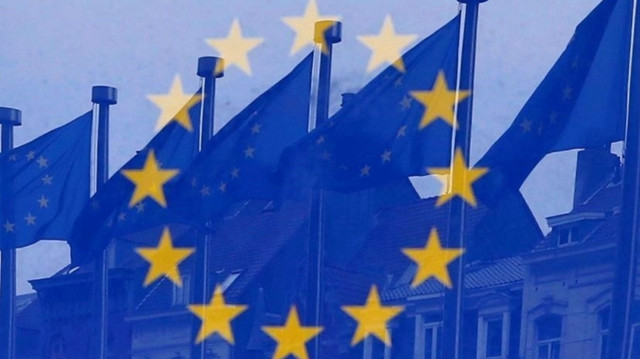
Copenhagen pledges to strengthen Europe's resilience under 'A Strong Europe in a Changing World'
Denmark assumed the six-month rotating presidency of the European Council on Tuesday, promising to steer the bloc through a turbulent global landscape by enhancing security, competitiveness, and strategic autonomy.
Taking on the role for the eighth time, Denmark will lead the EU Council until December 31, at a critical juncture marked by international instability, economic rivalry, and ongoing conflicts. Operating under the slogan “A Strong Europe in a Changing World,” the Danish Presidency aims to boost the bloc's ability to act independently while promoting democratic values and internal reform.
The official program emphasizes reinforcing the EU's defense capacity, advancing the green transition, and delivering military and financial support for Ukraine. “Europe must be able to act in its own right,” it reads, calling for expanded European defense industries and continued pressure on Russia.
Denmark, a top donor to Ukraine, is expected to push for accelerated arms deliveries across the EU, even as internal divisions persist. Slovakia recently blocked the bloc's 18th sanctions package on Russia, while Hungary continues to stall Ukraine's EU accession talks, despite a green light from the European Commission.
Enlargement policy is also high on the Danish agenda, with a focus on Ukraine, Moldova, and the Western Balkans. Denmark has vowed to pursue “merit-based” expansion, preparing the EU for future accessions by strengthening the rule of law and undertaking institutional reforms.
Economically, Denmark will guide talks on the EU's next long-term budget, while advocating for regulatory simplification, industrial innovation, and green sector growth. Defense financing and the ReArm Europe plan will remain a top priority.
On transatlantic relations, uncertainty looms as US President Donald Trump's potential tariff hikes threaten EU-US trade ties. A key deadline looms on July 9, and Denmark, traditionally a proponent of open markets, must now work to unify the bloc's stance on possible retaliatory measures if no trade deal is reached.
In migration policy, Denmark is expected to promote tougher EU asylum rules, reflecting its nationally restrictive model, including proposals to outsource asylum processing to third countries.
European Council President Antonio Costa welcomed the new presidency, writing on X: "Welcome to the Danish presidency @eu2025dk. I wish you success for the upcoming six months. Dear Mette @statsmin, looking forward to our close cooperation and see you at the official presidency opening in Aarhus this week!"
European Commission President Ursula von der Leyen also posted a message of support, saying: "A very warm welcome to Denmark as it begins its EU Council Presidency. I look forward to working together on a safe and competitive Europe. With Danish pragmatism and leadership, Europe is in good hands."
To mark the start of its term, von der Leyen will lead the College of Commissioners to Aarhus on Thursday, joining Costa for the official presidency opening ceremony.







